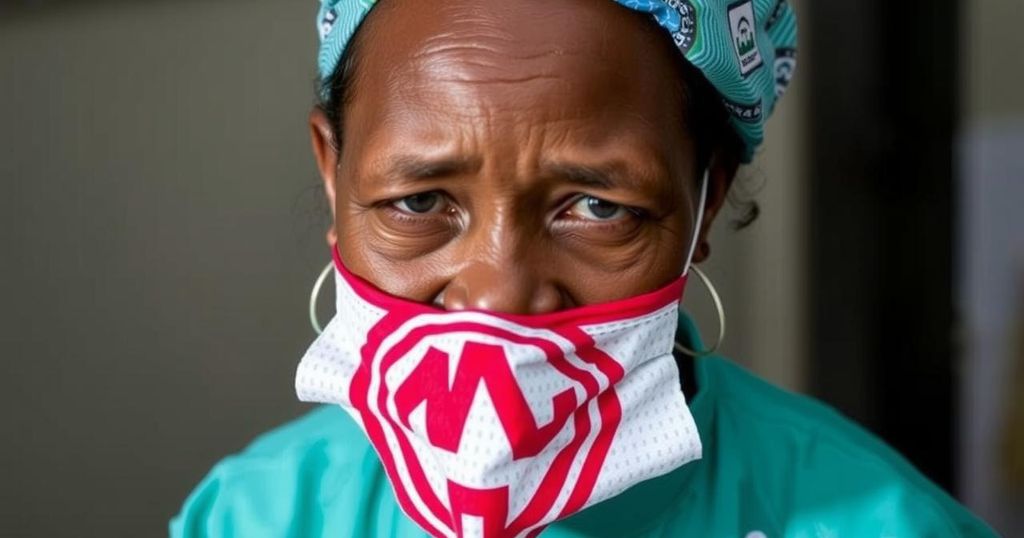Urgent Investigation into Mystery Disease Outbreak in the Democratic Republic of Congo
A severe outbreak of a mystery disease in the DRC has led to numerous deaths, prompting urgent investigations by health officials. Challenges include limited diagnostic capabilities and delays in detection and reporting. The situation highlights the need for improved global health surveillance systems to better manage infectious disease outbreaks, as efforts like the 7-1-7 initiative aim for timely responses to such crises.
Recently, the southwestern region of the Democratic Republic of the Congo (DRC) has been afflicted by an unidentified disease resulting in numerous fatalities. Health officials are actively engaged in investigating this outbreak to determine its origin, initially focusing on known endemic illnesses. However, challenges arise due to limited resources in healthcare facilities, which predominantly test for common pathogens, complicating the diagnosis of less prevalent diseases. Consequently, sample testing may need to occur in specialized laboratories, potentially outside the nation, which presents hurdles regarding the international sharing of biological materials.
Another critical aspect of the investigation involves understanding the outbreak’s extent and severity. The high mortality rate and the significant number of cases are concerning; however, determining the true scale of the issue is complex. Many infected individuals may not seek medical attention due to the accessibility of clinics, especially in remote regions where health facilities are sparse and often understaffed. Furthermore, not every infected patient will receive a diagnosis or report their condition to health authorities, contributing to the lack of comprehensive data on this outbreak.
This incident is not an isolated event, as new infectious diseases are increasingly emerging—partially attributed to factors such as climate change, urbanization, and deforestation, which enable pathogens to transfer from animals to humans. The global surveillance system for infectious diseases is inadequate, leading to many areas, particularly in developing nations, being susceptible to undetected or late-detected outbreaks. The delay between infection, diagnosis, and appropriate response further exacerbates the risk of widespread illness.
In addressing these challenges, one initiative put forth by the World Health Organization (WHO) is the 7-1-7 program, aiming to ensure that outbreaks are identified within seven days, reported to health authorities within one day, and that the initial response is executed within seven days. Despite its aspirational targets, this may still prove inadequate for swift-moving outbreaks. Moreover, enhancing the integration and coordination of existing surveillance systems presents another avenue for improvement, although results thus far have been mixed. Overall, without substantial advancements in global disease monitoring, the potential for the next pandemic remains high, necessitating urgent attention and action from the international community.
The text highlights a recent outbreak of an unidentified disease in the DRC, underlining the responses of health officials. It addresses the limitations faced by healthcare providers in low-income countries relating to disease detection and response capabilities. Furthermore, it sheds light on the broader implications of such outbreaks, emphasizing the need for improved global surveillance systems to preemptively identify and manage emerging infectious diseases. With pressing global health initiatives, the discussion situates the DRC’s current situation within a larger framework of public health preparedness and response.
In summary, the outbreak of a mystery disease in the Democratic Republic of the Congo raises significant concerns regarding public health surveillance, response capabilities, and the adequacy of existing healthcare systems in low-income nations. While initiatives like the WHO’s 7-1-7 program aim to enhance outbreak detection and response, the effectiveness of such measures remains uncertain. It is crucial for global health authorities to invest in robust surveillance mechanisms to avert future pandemics and respond more effectively to emergent threats.
Original Source: www.downtoearth.org.in




Post Comment